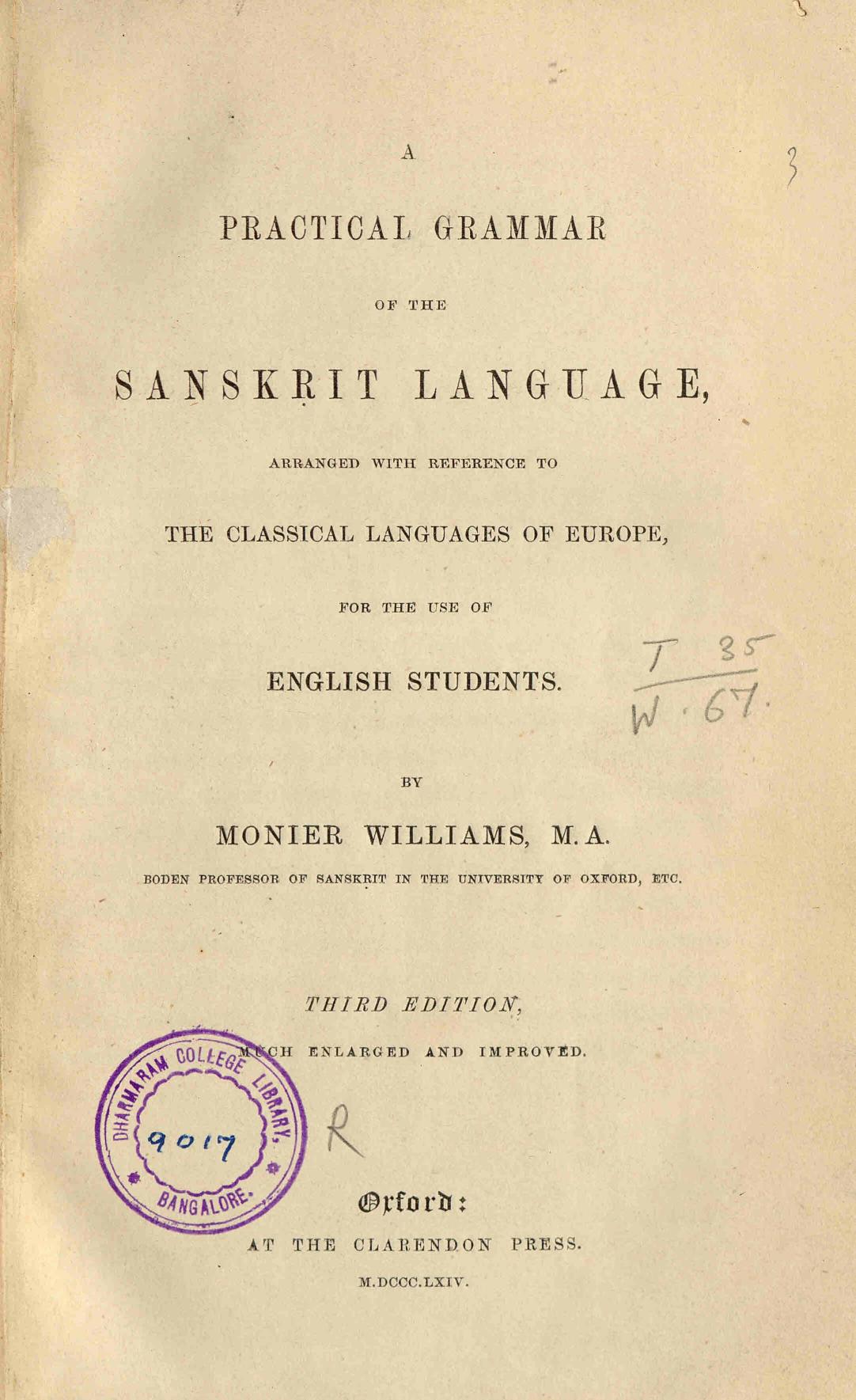Through this post we are releasing the scan of the book published in the year 1864 titled Practical Grammer of the Sanskrit Language written by Monier Williams in 1864. He was the sanskrit professor at East India College. This book is an enlarged and complete version of the earlier book written by the author in the year 1846 by name “An Elementary Grammer, arranged according to a new Theory.”
This book consisting 446 pages describes about the letters, pronounciation, classification, accentuation, method of writing and the grammer in a broad way. Sanskrit is the classical and learned language of the Hindus in which their literature is written and which bears the same relation to their vernacular dialects that Greek and Latin bear to the spoken dialects of Europe. The script is called Devanagari. The author has written this book for enabling the Engllish and other non indian language speaking people.
In its grammatical structure, Sanskrit is similar to other early Indo-European languages such as Greek and Latin. It is an inflected language. For instance, the Sanskrit nominal system—including nouns, pronouns, and adjectives—has three genders (masculine, feminine, and neuter), three numbers (singular, dual, and plural), and seven syntactic cases (nominative, accusative, instrumental, dative, ablative, genitive, and locative), in addition to a vocative.
This document is digitized as part of the Dharmaram College Library digitization project.

1864 – Practical Grammer of the Sanskrit Language – Monier Williams
Metadata and link to the digitized document
Metadata and link to the digitized document are provided below. A facility to read the document online is provided in the item page. Click on the first image that you see on the item page to download the document.
- Name: Practical Grammer of the Sanskrit Language
- Author : Monier Williams
- Published Year: 1864
- Number of pages: 446
- Press: The Clarendon Press, Oxford
- Scan link: Link
